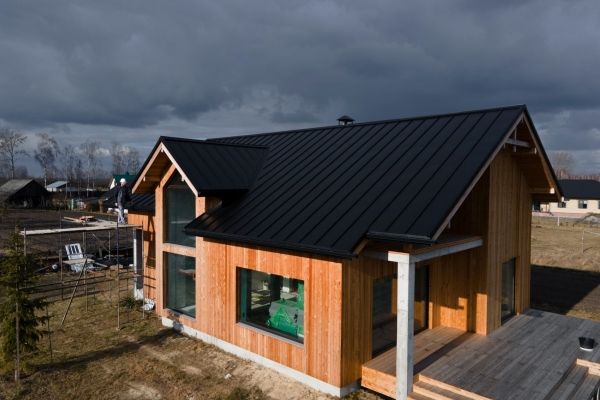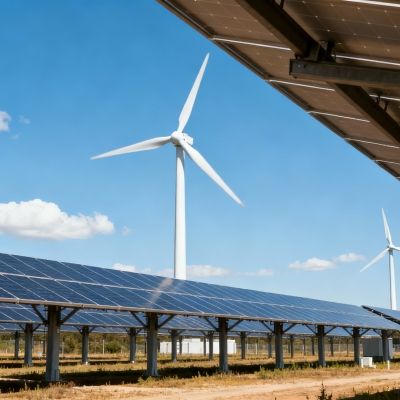VITO/EnergyVille's Energy Policy team contributes to four vital reports on EU energy and climate
As Europe continues its mission towards a sustainable and climate-neutral future, VITO/EnergyVille continues to make its mark towards that same end.
Indeed, in recent months, our VITO/EnergyVille Energy Policy Team shared its expertise in no less than four critical European reports, helping to shape Europe’s energy and climate landscape by providing in-depth analysis and recommendations.

This article explores the four pivotal reports to which the VITO/EnergyVille Energy Policy Team recently made significant contributions. So, we invite you to read on to gain deeper insights into these reports, and discover the challenges and opportunities on the journey to a sustainable, low-carbon future.
VITO/EnergyVille Role in Shaping European Policy Reports
VITO/EnergyVille's impact on shaping European policymaking is currently top of mind, as it played a pivotal part in four recently published European reports – reports which do not only offer valuable insights into Europe’s progress towards its energy and climate goals, but also highlight the challenges that still lie ahead of us.
1. Report ‘Trends and Projections’
The Trends and Projections Report aims to monitor Europe’s progress on climate and energy towards 2030. As such, the report covers a wide range of aspects – including the reduction of greenhouse gas emissions, renewable energy gains, and improved energy efficiency.
This extensive report sprang from a collaboration between the European Environment Agency (EEA) and the European Topic Centre on Climate Change Mitigation (ETC-CM). As coordinating partner of ETC-CM, VITO/EnergyVille was entrusted with the task of tracking energy efficiency targets up to 2030 and beyond, both at EU and Member State level.
One notable finding from the report is the urgent need for intensified energy savings to achieve the 2030 targets. Indeed, the results show an urgent need to more than double the average annual reduction in primary energy by 2030, and quadruple it for final consumption compared to 2005-2022. Hence the report’s emphasis on the urgency for action in advancing climate and energy progress in Europe.
2. RES-Adequacy Report: Flexibility Solutions for a Decarbonized and Secure EU Electricity System
The RES-Adequacy report, with RES standing for ‘Renewable Energy Sources’, centers around the significant dual challenge that policymakers and investors face in the coming decade – a challenge which finds its roots in the imperative of increasing the utilization of renewable electricity, while simultaneously ensuring the adequacy and reliability of the energy supply.
Within the context of this report, VITO/EnergyVille – as the EEA’s designated coordinating partner of the ETC-CM – played a substantial role in the report’s preparation, with contributions focusing on identifying main trends, assessing policy toolboxes and examining case studies.
The central message of this RES-Adequacy Report underscores the need for proactive and coordinated policy efforts to unlock flexibility resources – both domestically and across borders – without compromising the security of energy supply. Thus, the report emphasizes key areas for additional efforts, including smart sector coupling, energy storage and enabling infrastructures. Ultimately, the RES-Adequacy Report highlights the necessity of enhancing the flexibility of the electricity system to ensure a secure and sustainable energy supply.
3. Eighth Report on the State of the Energy Union
The Eighth Report on the State of the Energy Union provides a comprehensive overview of the challenges and progress made in the energy sector over the past year.
VITO/EnergyVille – as part of a consortium of European research institutes for the European Commission – contributed to the assessment of the first Member State progress reports on their national energy and climate plans (NECPs), which were due by March 2023. Here, the VITO/EnergyVille Energy Policy Team played a pivotal role in setting up assessment methodologies and carrying out part of the assessments. The findings from these assessments formed the basis for the report titled “Assessment of progress towards the objectives of the Energy Union and Climate Action” which, in turn, served as a foundational source for the Eighth Report on the State of the Energy Union.
The central message of the overall Eighth Report is that substantial ambition and implementation efforts are still required to achieve the EU’s heightened 2030 objectives and advance toward climate neutrality by 2050. The share of renewable energy in gross final energy consumption reached 21.8% in 2021. However, to attain the 2030 EU target of 42.5%, a much faster growth rate is needed in the coming years.
Thus, this report calls for a significant acceleration of actions to meet the EU’s 2030 targets and enhance progress in key areas, such as reducing greenhouse gas emissions and increasing renewable energy adoption.
4. PaMs Report: Policies and Measures Tracking for the Energy Union
Every two years, EU countries must report on their national policies and measures (PaMs) covering all five dimensions of the energy union, including security, solidarity and trust, a fully integrated internal energy market, energy efficiency and climate action aimed at decarbonization. The PaMs report underscores that a significant portion of these policies and measures have been recently implemented or are planned, thereby indicating EU countries’ dedication to meeting the 2030 targets.
VITO/EnergyVille, as lead author, prepared the report focusing on recent policy developments. They played a crucial role in checking and aggregating information provided by EU countries regarding their PaMs across all five dimensions of the energy union.
The main message of the PaMs report underlines the extensive commitment of EU countries to address climate and energy challenges, as they reported more than 3,000 individual policies and measures. At the same time, however, challenges related to data quality and the completeness of quantitative information on policy impacts remain, thus it equally indicates the need for further progress tracking.
VITO/EnergyVille as a Partner for Policy Assessments
The four vital reports briefly discussed in this article shed light on the challenges and opportunities that Europe faces on its path to a sustainable, low-carbon future.
The VITO/EnergyVille Energy Policy Team’s active contribution to these reports underlines its role as a key player in European policymaking. Not only are they involved in following up on energy efficiency targets, but also in tackling the dual challenge of increasing renewable electricity and ensuring energy supply. Moreover, the team provides comprehensive insights into the state of the energy union. The team’s key role in these four crucial European reports proves, beyond doubt, their expertise and unwavering dedication.
In summary, it is safe to say there is a pressing need for action to make progress on energy and climate across Europe. And as policymakers and investors strive for a sustainable and climate-neutral future, VITO/EnergyVille’s contributions continue to be vital in helping to guide the way forward.
Happy to Help
Are you interested to discover what our VITO/EnergyVille Energy Policy Team might be able to do for you?
Then don’t hesitate to reach out to our experts Ils Moorkens – coordinator of the VITO/EnergyVille team for the assessment of NECP(R)s – and Tom Dauwe – coordinator of the ETC-CM.
They will gladly be of assistance to you.
This article came about thanks to expert input from our VITO/EnergyVille researchers Ils Moorkens, Nele Renders, Kelsey van Maris, and Tom Dauwe.











